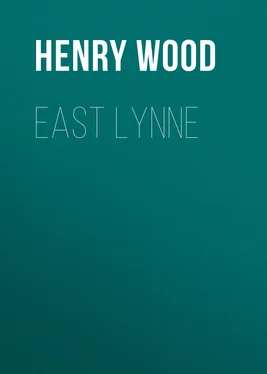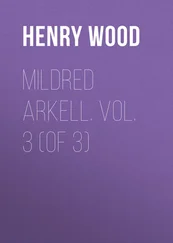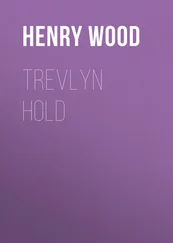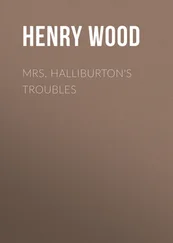Henry Wood - East Lynne
Здесь есть возможность читать онлайн «Henry Wood - East Lynne» — ознакомительный отрывок электронной книги совершенно бесплатно, а после прочтения отрывка купить полную версию. В некоторых случаях можно слушать аудио, скачать через торрент в формате fb2 и присутствует краткое содержание. Жанр: foreign_prose, literature_19, foreign_antique, на английском языке. Описание произведения, (предисловие) а так же отзывы посетителей доступны на портале библиотеки ЛибКат.
- Название:East Lynne
- Автор:
- Жанр:
- Год:неизвестен
- ISBN:нет данных
- Рейтинг книги:5 / 5. Голосов: 1
-
Избранное:Добавить в избранное
- Отзывы:
-
Ваша оценка:
- 100
- 1
- 2
- 3
- 4
- 5
East Lynne: краткое содержание, описание и аннотация
Предлагаем к чтению аннотацию, описание, краткое содержание или предисловие (зависит от того, что написал сам автор книги «East Lynne»). Если вы не нашли необходимую информацию о книге — напишите в комментариях, мы постараемся отыскать её.
East Lynne — читать онлайн ознакомительный отрывок
Ниже представлен текст книги, разбитый по страницам. Система сохранения места последней прочитанной страницы, позволяет с удобством читать онлайн бесплатно книгу «East Lynne», без необходимости каждый раз заново искать на чём Вы остановились. Поставьте закладку, и сможете в любой момент перейти на страницу, на которой закончили чтение.
Интервал:
Закладка:
Mr. Carlyle remained silent, rapidly running over in his mind the chief points of Richard Hare’s communication. “Four of you, as I understand it, were in the vicinity of the cottage that night, and from one or the other the shot no doubt proceeded. You were at a distance, you say, Richard; Bethel, also, could not have been—”
“It was not Bethel who did it,” interrupted Richard; “it was an impossibility. I saw him, as I tell you, in the same moment that the gun was fired.”
“But now, where was Locksley?”
“It is equally impossible that it could have been Locksley. He was within my view at the same time, at right angles from me, deep in the wood, away from the paths altogether. It was Thorn did the deed, beyond all doubt, and the verdict ought to have been willful murder against him. Carlyle, I see you don’t believe my story.”
“What you say has startled me, and I must take time to consider whether I believe it or not,” said Mr. Carlyle, in his straightforward manner. “The most singular thing is, if you witnessed this, Thorn’s running from the cottage in the manner you describe, that you did not come forward and denounce him.”
“I didn’t do it, because I was a fool, a weak coward, as I have been all my life,” rejoined Richard. “I can’t help it; it was born with me, and will go with me to my grave. What would my word have availed that it was Thorn, when there was nobody to corroborate it? And the discharged gun, mine, was a damnatory proof against me.”
“Another thing strikes me as curious,” cried Mr. Carlyle. “If this man, Thorn, was in the habit of coming to West Lynne, evening after evening, how was it that he never was observed? This is the first time I have heard any stranger’s name mentioned in connection with the affair, or with Afy.”
“Thorn chose by-roads, and he never came, save that once, but at dusk and dark. It was evident to me at the time that he was striving to do it on the secret. I told Afy so, and that it augured no good for her. You are not attaching credit to what I say, and it is only as I expected; nevertheless, I swear that I have related the facts. As surely as that we—I, Thorn, Afy and Hallijohn, must one day meet together before our Maker, I have told you the truth.”
The words were solemn, their tone earnest, and Mr. Carlyle remained silent, his thoughts full.
“To what end, else, should I say this?” went on Richard. “It can do me no service; all the assertion I could put forth would not go a jot toward clearing me.”
“No, it would not,” assented Mr. Carlyle. “If ever you are cleared, it must be by proofs. But—I will keep my thought on the matter, and should anything arise–What sort of a man was this Thorn?”
“In age he might be three or four and twenty, tall and slender; an out-and-out aristocrat.”
“And his connections? Where did he live?”
“I never knew. Afy, in her boasting way, would say he had come from Swainson, a ten mile ride.”
“From Swainson?” quickly interrupted Mr. Carlyle.
“Could it be one of the Thorns of Swainson?”
“None of the Thorns that I know. He was a totally different sort of man, with his perfumed hands, and his rings, and his dainty gloves. That he was an aristocrat I believe, but of bad taste and style, displaying a profusion of jewellery.”
A half smile flitted over Carlyle’s face.
“Was it real, Richard?”
“It was. He would wear diamond shirt-studs, diamond rings, diamond pins; brilliants, all of the first water. My impression was, that he put them on to dazzle Afy. She told me once that she could be a grander lady, if she chose, than I could ever make her. ‘A lady on the cross,’ I answered, ‘but never on the square.’ Thorn was not a man to entertain honest intentions to one in the station of Afy Hallijohn; but girls are simple as geese.”
“By your description, it could not have been one of the Thorns of Swainson. Wealthy tradesmen, fathers of young families, short, stout, and heavy as Dutchmen, staid and most respectable. Very unlikely men are they, to run into an expedition of that sort.”
“What expedition?” questioned Richard. “The murder?”
“The riding after Afy. Richard, where is Afy?”
Richard Hare lifted his eyes in surprise. “How should I know? I was just going to ask you.”
Mr. Carlyle paused. He thought Richard’s answer an evasive one. “She disappeared immediately after the funeral; and it was thought—in short, Richard, the neighborhood gave her credit for having gone after and joined you.”
“No! did they? What a pack of idiots! I have never seen or heard of her, Carlyle, since that unfortunate night. If she went after anybody, it was after Thorn.”
“Was the man good-looking?”
“I suppose the world would call him so. Afy thought such an Adonis had never been coined, out of fable. He had shiny black hair and whiskers, dark eyes and handsome features. But his vain dandyism spoilt him; would you believe that his handkerchiefs were soaked in scent? They were of the finest cambric, silky as a hair, as fine as the one Barbara bought at Lynneborough and gave a guinea for; only hers had a wreath of embroidery around it.”
Mr. Carlyle could ascertain no more particulars, and it was time Richard went indoors. They proceeded up the path. “What a blessing it is the servants’ windows don’t look this way,” shivered Richard, treading on Mr. Carlyle’s heels. “If they should be looking out upstairs!”
His apprehensions were groundless, and he entered unseen.
Mr. Carlyle’s part was over; he left the poor banned exile to his short interview with his hysterical and tearful mother, Richard nearly as hysterical as she, and made the best of his way home again, pondering over what he had heard.
The magistrates made a good evening of it. Mr. Carlyle entertained them to supper—mutton chops and bread and cheese. They took up their pipes for another whiff when the meal was over, but Miss Carlyle retired to bed; the smoke, to which she had not been accustomed since her father’s death, had made her head ache and her eyes smart. About eleven they wished Mr. Carlyle good-night, and departed, but Mr. Dill, in obedience to a nod from his superior, remained.
“Sit down a moment, Dill; I want to ask you a question. You are intimate with the Thorns, of Swainson; do they happen to have any relative, a nephew or cousin, perhaps, a dandy young fellow?”
“I went over last Sunday fortnight to spend the day with young Jacob,” was the answer of Mr. Dill, one wider from the point than he generally gave. Mr. Carlyle smiled.
“ Young Jacob! He must be forty, I suppose.”
“About that. But you and I estimate age differently, Mr. Archibald. They have no nephew; the old man never had but those two children, Jacob and Edward. Neither have they any cousin. Rich men they are growing now. Jacob has set up his carriage.”
Mr. Carlyle mused, but he expected the answer, for neither had he heard of the brothers Thorn, tanners, curriers, and leather-dressers, possessing a relative of the name. “Dill,” said he, “something has arisen which, in my mind, casts a doubt upon Richard Hare’s guilt. I question whether he had anything to do with the murder.”
Mr. Dill opened his eyes. “But his flight, Mr. Archibald, And his stopping away?”
“Suspicious circumstances, I grant. Still, I have good cause to doubt. At the time it happened, some dandy fellow used to come courting Afy Hallijohn in secret; a tall, slender man, as he is described to me, bearing the name of Thorn, and living at Swainson. Could it have been one of the Thorn family?”
“Mr. Archibald!” remonstrated the old clerk; “as if those two respected gentlemen, with their wives and babies, would come sneaking after that flyaway Afy!”
Читать дальшеИнтервал:
Закладка:
Похожие книги на «East Lynne»
Представляем Вашему вниманию похожие книги на «East Lynne» списком для выбора. Мы отобрали схожую по названию и смыслу литературу в надежде предоставить читателям больше вариантов отыскать новые, интересные, ещё непрочитанные произведения.
Обсуждение, отзывы о книге «East Lynne» и просто собственные мнения читателей. Оставьте ваши комментарии, напишите, что Вы думаете о произведении, его смысле или главных героях. Укажите что конкретно понравилось, а что нет, и почему Вы так считаете.












